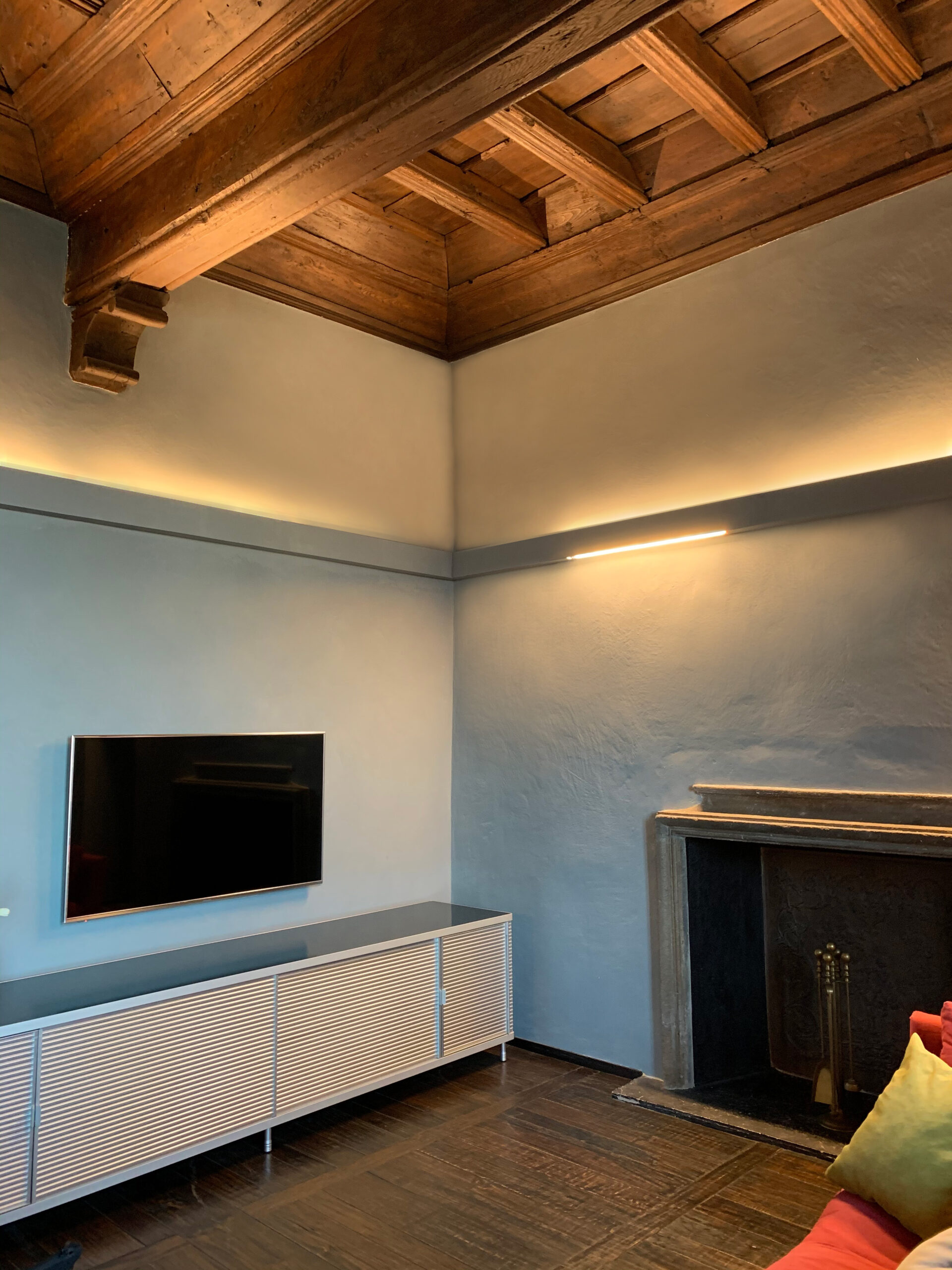› Profession Lighting Designer:
DESIGNING LIGHT TO ENHANCE SPACES
By Paola Urbano
It is known how light can condition physical and psychological wellness, it can define how comfortable is to stay in a specific environment, and it influences the aesthetics of the environment itself, whether it’s natural or artificial.
These assumptions mean that today many people want to benefit from well-lit environments, but a few takes advantage of lighting professionals: lighting designers that, with the right skills, are able to control the entire designing process, which is the basis for a good lighting.
However, customers are not always aware of the skills a good lighting designer should have. This is also because in Italy the lighting design field is not prescribed by any law, although some regulations do exist, but they are rarely applied.
The profession of the lighting designer is more complex and multidisciplinary that some may imagine. It is a combination between art and science.

Lighting Design as an art
Lighting design is an art because it is a form of creativity, an aesthetical expression, a language that, if used with sensibility, can emphasize the particularities of an architecture, a monument, a square or an environment.
With a structured project, characterized by focused interest hierarchies, it is possible to guide the observer through the space and to stimulate curiosity towards strategic spots of this space. Light also offers new perceptive results, and it can turn welcoming an unappetizing environment.
Who designs must be aware of how and how much light can influence moods. It is possible to arouse interest, and to encourage socialization or interaction with the contents of an exhibition. Each project can have many aspects based on its “focuses”, without forgetting the improvement of the environment and life quality.
Moreover, each place has its own specificity and, in order to enlighten it, it is necessary to deeply know its aesthetical and historical values, respecting and analyzing it, and just then deciding what to conceal or show and, especially, how to show it.
Lighting Design come scienza
In the meantime, this profession is also a science, as it requires scientific and technical knowledge necessary to control the different parameters that contribute to define and realize the lighting effects, according to specific project goals.
Light, with all its features, both quantitatively and qualitatively, must be studied and balanced according to its interaction with colors, materials, beside the morphologic and spatial values of an environment.
It is just as important to know how light acts on processes and photochemical alterations, therefore on the deterioration of some materials. These aspects are crucial when working in a museum, a church or an historical building featuring frescoes or any other photosensitive artworks.
It is also necessary to know how light affects, beside human beings and its circadian rhythms physiologically and psychologically, even the fauna and vegetation present in a specific environment. Today more than ever, who has a project responsibility must operate with sensibility and ethical consciousness, keeping in mind that every condition for the environment wellbeing must be preserved.
In addition to these skills, there are also the ones related to the constant updating in the matter of technological solutions.
Today, the transition from electric lighting to electronic LED lighting is now consolidated and, even if systems tend to the maximum simplicity for the final user, we are dealing with complex systems that require specialist skills and more accurate designs. This last aspect, however, is not always fully understood and lighting, with its freedom of management, risks sometimes to be perceived only for its ludic purpose, or as something that can be “fixed” during its usage, without any project prerequisites. This behavior is misleading, in the detriment of the environment quality, and with the risk to invest needlessly on underused systems or, on the contrary, to adopt low quality solutions compared to the expectations.
It is important to be supported by skilled professionals, able to capture the full picture with every lighting need, and capable of choosing wisely in the matter of technological solutions, with an appropriate estimate of costs and benefits.
Lastly, there is a wide legislative and normative system that the professional must know and follow.
All these factors highlight the complexity of a real lighting project, that must be conceived in all its interdisciplinary and ethical values. These values must be culturally understood by the clients, because they are the elements that contribute to the real environmental quality, enhancing our spaces.

